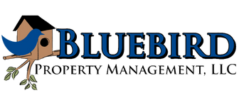Landlords are allowed to raise the rent once the lease has expired. If you decide to stay in the apt/house another year once your lease has expired, you will normally be issued a lease renewal which may or may not have a rent increase; so you need to read your lease and any lease renewals carefully. If you are renting month-to-month then rent increases are more likely to occur.
Yes, renters’ insurance is mandatory and proof of renters’ insurance is required prior to signing your lease and receiving keys to your new apt/home.
Utilities are the basics you need for any housing unit: electricity, heat, water, and trash pickup. Sometimes these bills are included in your rent payment and are handled by your landlord, but other times the tenant directly receives the bill. Be sure to ask your landlord about utilities before singing the lease so you know what you’ll be expected to pay for.
It is very important to know the difference between these two terms, as they will determine how long you’ll stay at a place and sometimes even the rent price. A fixed-term lease is an agreement that states the tenant will remain in the apartment or home for a pre-determined amount of time- usually a year. Month-to month lease tend to have higher rent prices because the landlord is not guaranteed income for the next month.
Making simple aesthetic changes, like swapping furniture, is not a problem (unless you rented a furnished unit). But if you want to make changes to the apartment itself- like painting or mounting some shelves on the wall- you will need to check the terms of your lease. Many landlords have a clause in the lease requiring written permission, so even if you receive verbal permission from your landlord, be sure to cover your butt and get a written document specifically telling you what you can and cannot do.
Foregoing landlord permission can leave you with a financial mess at the end of the lease term if you aren’t able to reverse all of the changes. It’s much easier to be straightforward with your landlord and simply ask what kind of changes you’re allowed to make.
If you have roommates, you’ll want to consult them before bringing visitors- especially longer-term visitors-into your home. Secondly, check your lease terms to see if your landlord has already outlined a guest policy for how long people not on the lease are allowed to stay on the premises. Many leases have special terms that add extra rent costs when more residents occupy the apartment. Sometimes the leases forbid new tenants altogether, as many landlords don’t want to be responsible for people not signed on the lease. At Bluebird having someone else stay in your rental apt/home is a direct lease violation and you can be evicted so please don’t allow anyone to stay with you unless they are added to your lease agreement.
Subletting entirely depends on what is stated in your lease and your local tenant laws. Some landlords welcome sublets and others do not. If you have any questions, be sure to ask your landlord. Bluebird does not allow subletting.
Your level of responsibility for the exterior of the house depends on what kind of rental you have and the terms dictated in the lease. If you live in a large apartment complex, the courtyard will often be cared for – whether it is lawn mowing or snow shoveling- by the building’s maintenance team. If you live in house, you are often responsible for the yard maintenance. Be sure to read your lease carefully to avoid any confusion.
Landlords are required to make routine repairs in a timely fashion, no matter how small. Major repairs that compromise day-to-day living for tenants should be a top priority. If your landlord does not respond to your first request, then send a second request. According to South Carolina landlord/tenant law the landlord has 14 days to make repairs.
This can be tricky. What repairs landlords are responsible for can vary. But as a generalization, landlords are usually responsible for most major repairs. Not including, changing lightbulbs, filters, and etc. To prevent yourself from the liabilities that are involved with performing maintenance yourself and it going poorly; read your lease regarding what repairs tenants are responsible for.
Not every home or apartment comes with a parking spot, and in many situations, a parking spot will be an additional monthly fee. Be sure to ask landlord how parking works. Is there a parking lot or do tenants rely on street parking? Do you have a space assigned to you or is parking a free-for-all? If parking is assigned, where are visitors supposed to park? All of these questions for inspecting a potential apartment, especially if you have a car.
Most states require a landlord to give 24-hour notice before entering the unit, but that too can vary by city; Due to some areas having no set minimum for advance notice. All Bluebird Properties are inspected yearly and tenants will be given notice in advance. If you call in a maintenance repair no advance notice to enter is required.
Always be sure to communicate with your landlord. Telling them that your rent is coming late might be a bit embarrassing, but it’s much better than sending a check that will bounce or just not paying the rent at all. Keep in mind that if you don’t pay rent on time continuously, the landlord has the right to issue an eviction notice. We (Bluebird Property Mgt LLC.) will file evictions each month on the 10th of the month, for anyone with unpaid rent.
